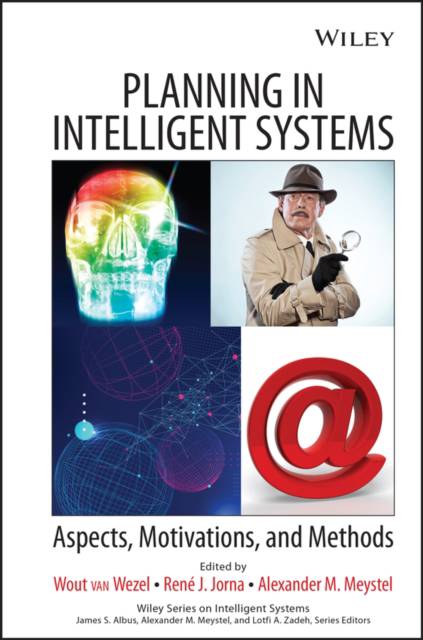
- Afhalen na 1 uur in een winkel met voorraad
- Gratis thuislevering in België vanaf € 30
- Ruim aanbod met 7 miljoen producten
- Afhalen na 1 uur in een winkel met voorraad
- Gratis thuislevering in België vanaf € 30
- Ruim aanbod met 7 miljoen producten
Zoeken
Planning in Intelligent Systems
Aspects, Motivations, and Methods
€ 274,45
+ 548 punten
Omschrijving
The first comparative examination of planning paradigms
This text begins with the principle that the ability to anticipate and plan is an essential feature of intelligent systems, whether human or machine. It further assumes that better planning results in greater achievements. With these principles as a foundation, Planning in Intelligent Systems provides readers with the tools needed to better understand the process of planning and to become better planners themselves.
The text is divided into two parts:
* Part One, "Theoretical," discusses the predominant schools of thought in planning: psychology and cognitive science, organizational science, computer science, mathematics, artificial intelligence, and systems theory. In particular, the book examines commonalities and differences among the goals, methods, and techniques of these various approaches to planning. The result is a better understanding of the process of planning through the cross-fertilization of ideas. Each chapter contains a short introduction that sets forth the interrelationships of that chapter to the main ideas featured in the other chapters.
* Part Two, "Practical," features six chapters that center on a case study of The Netherlands Railways. Readers learn to apply theory to a real-world situation and discoverhow expanding their repertoire of planning methods can help solve seemingly intractable problems.
All chapters have been contributed by leading experts in the various schools of planning and carefully edited to ensure a consistent high standard throughout.
This book is designed to not only expand the range of planning tools used, but also to enable readers to use them more effectively. It challenges readers to look at new approaches and learn from new schools of thought. Planning in Intelligent Systems delivers effective planning approaches for researchers, professors, students, and practitioners in artificial intelligence, computer science, cognitive psychology, and mathematics, as well as industry planners and managers.
This text begins with the principle that the ability to anticipate and plan is an essential feature of intelligent systems, whether human or machine. It further assumes that better planning results in greater achievements. With these principles as a foundation, Planning in Intelligent Systems provides readers with the tools needed to better understand the process of planning and to become better planners themselves.
The text is divided into two parts:
* Part One, "Theoretical," discusses the predominant schools of thought in planning: psychology and cognitive science, organizational science, computer science, mathematics, artificial intelligence, and systems theory. In particular, the book examines commonalities and differences among the goals, methods, and techniques of these various approaches to planning. The result is a better understanding of the process of planning through the cross-fertilization of ideas. Each chapter contains a short introduction that sets forth the interrelationships of that chapter to the main ideas featured in the other chapters.
* Part Two, "Practical," features six chapters that center on a case study of The Netherlands Railways. Readers learn to apply theory to a real-world situation and discoverhow expanding their repertoire of planning methods can help solve seemingly intractable problems.
All chapters have been contributed by leading experts in the various schools of planning and carefully edited to ensure a consistent high standard throughout.
This book is designed to not only expand the range of planning tools used, but also to enable readers to use them more effectively. It challenges readers to look at new approaches and learn from new schools of thought. Planning in Intelligent Systems delivers effective planning approaches for researchers, professors, students, and practitioners in artificial intelligence, computer science, cognitive psychology, and mathematics, as well as industry planners and managers.
Specificaties
Betrokkenen
- Uitgeverij:
Inhoud
- Aantal bladzijden:
- 592
- Taal:
- Engels
- Reeks:
Eigenschappen
- Productcode (EAN):
- 9780471734277
- Verschijningsdatum:
- 1/02/2006
- Uitvoering:
- Hardcover
- Formaat:
- Ongenaaid / garenloos gebonden
- Afmetingen:
- 162 mm x 242 mm
- Gewicht:
- 925 g

Alleen bij Standaard Boekhandel
+ 548 punten op je klantenkaart van Standaard Boekhandel
Beoordelingen
We publiceren alleen reviews die voldoen aan de voorwaarden voor reviews. Bekijk onze voorwaarden voor reviews.






